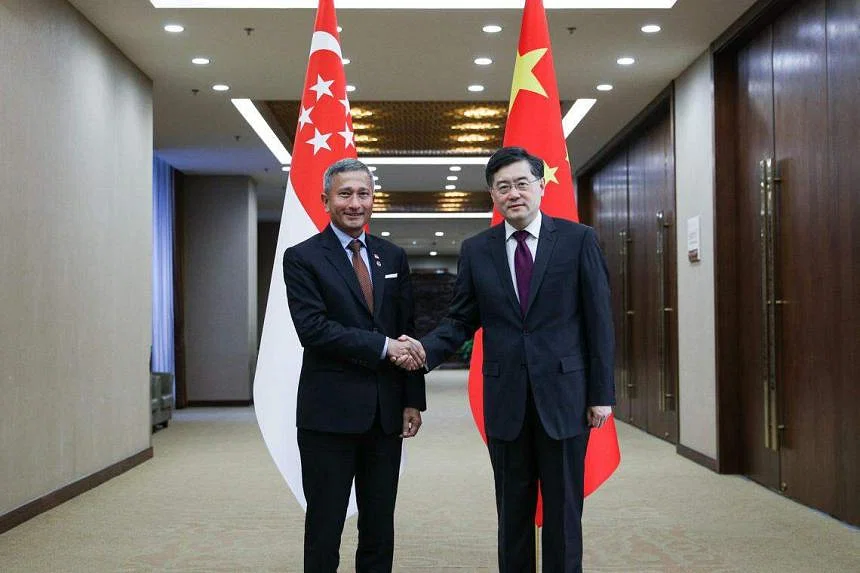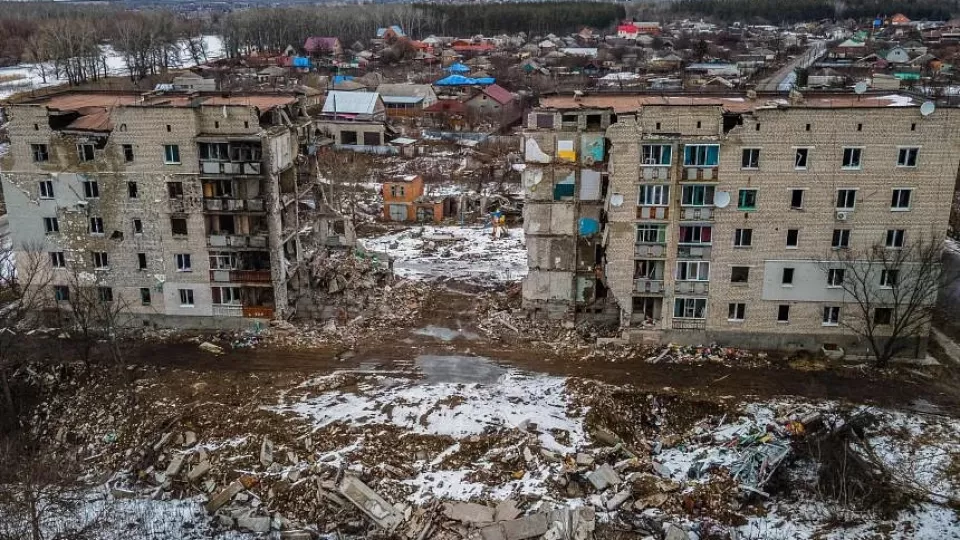February 22, 2023
BEIJING – As the Ukraine war approaches the one-year mark, the situation is worrying and could get worse before it gets better, said Singapore’s Foreign Minister Vivian Balakrishnan.
The hope is that negotiations or even a ceasefire can be worked out, not only for the sake of the Ukrainian people, but also to help lower the temperature for the “very delicate interactions” between the major powers: the United States, Russia, China and Europe, Dr Balakrishnan told reporters in Beijing.
Tens of thousands of people have died and millions have been displaced since Russian troops marched into Ukraine on Feb 24, 2022, with no end in sight to the conflict. It has pitted the US and Europe – which have been providing aid to Ukraine – against strategic partners Russia and China, which has refused to condemn Russian President Vladimir Putin for his aggression.
Singapore, as a small, independent, sovereign city-state, has also taken a position based on principle.
“Full respect for territorial integrity, independence and sovereignty of a nation, big or small, must be respected,” Dr Balakrishnan said as he wrapped up a three-day visit to China, where he met his newly appointed Chinese counterpart Qin Gang and other Chinese leaders.
Likewise, while tensions have escalated between Washington and Beijing over a downed suspected Chinese spy balloon, the world would like to see the two powers achieve a modus vivendi, said Dr Balakrishnan.
Describing the incident as a setback to interactions between the US and China, he said the face-to-face meeting between US Secretary of State Antony Blinken and China’s top diplomat Wang Yi on the sidelines of the recent Munich Security Conference will “hopefully restore the very necessary engagement, collaboration and cooperation” between the two countries.
“It will bring a measure of stability and calm which is necessary for the world at this point in time.”
Dr Balakrishnan’s visit to China was the first by a Singaporean leader since the country abandoned its zero-Covid policy in December and reopened its borders a month later. As life returns to normal in both China and Singapore, the pace of bilateral exchanges will also pick up, he said.
In spite of the change in leadership at the Chinese Foreign Ministry, he said he expects China’s engagement in the region to continue and even speed up.
South-east Asia has been China’s largest trading partner since 2020, and Asean and China are in negotiations to upgrade their free trade agreement signed in 2002 and updated in 2015.
There is also the Regional Comprehensive Economic Partnership, a trade pact that came into force in 2022 involving the Asean states and China, Japan, South Korea, Australia and New Zealand.
For the region and a major economic partner like China to continue beefing up their economic ties while globalisation is under strain, and free trade and economic integration are facing political pushback, is strategically significant, said Dr Balakrishnan.
“So, the point, then, is that I expect China’s interactions and engagement with South-east Asia to in fact accelerate in the years ahead.”

Singapore Foreign Minister Vivian Balakrishnan (left) with his Chinese counterpart Qin Gang in Beijing on Feb 20, 2023. PHOTO: MFA
While there are outstanding issues that have yet to be resolved, such as a South China Sea code of conduct, ongoing negotiations will help to bolster confidence and further catalyse economic engagement, he said.
Calling Mr Qin a “very accomplished diplomat”, Dr Balakrishnan said he is glad to see the new Chinese Foreign Minister already engaging South-east Asia. Apart from Singapore, Mr Qin had also met the Thai and Cambodian foreign ministers in Beijing recently, and is now on a visit to Indonesia.
The two men spent nearly four hours together on Monday, when Mr Qin also hosted Dr Balakrishnan to dinner.
“A very good introductory meeting for both of us to get a sense of what our priorities and what our anxieties are,” Dr Balakrishnan said of his time with Mr Qin.

Singapore Foreign Minister Vivian Balakrishnan speaking with China’s director of the Taiwan Affairs Office Song Tao in Beijing on Feb 21, 2023. PHOTO: MFA
Before returning to Singapore on Tuesday, he also met Mr Song Tao, director of the Taiwan Affairs Office. A statement by the Singapore Ministry of Foreign Affairs said Mr Song gave an update of his office’s priorities, while Dr Balakrishnan reaffirmed Singapore’s “one China” policy and support for the peaceful development of cross-strait relations.


